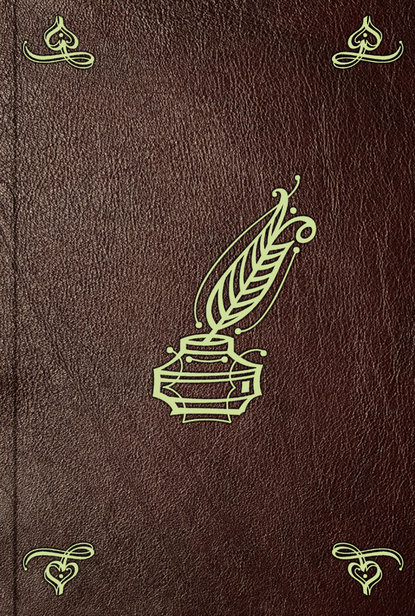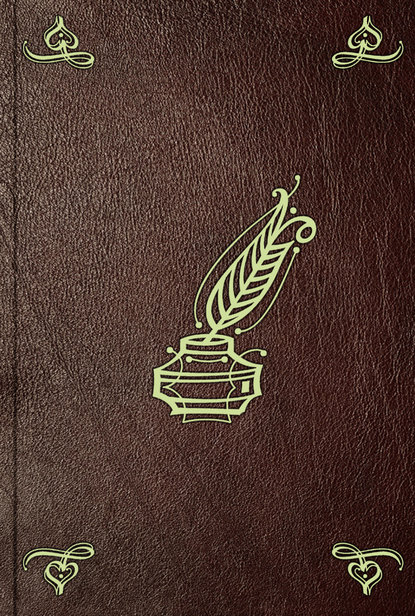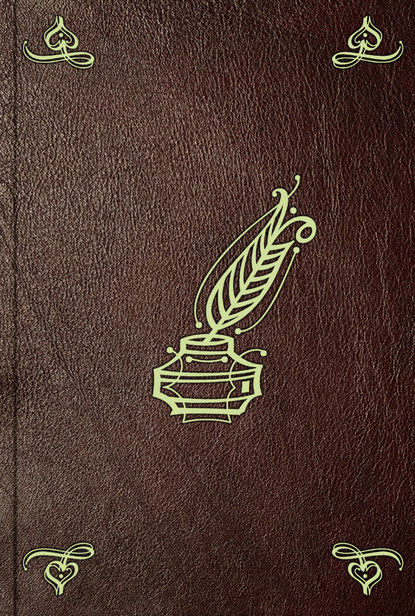
Полная версия
The Works of John Dryden, now first collected in eighteen volumes. Volume 18

John Dryden
The Works of John Dryden, now first collected in eighteen volumes. Volume 18 / Dialogue concerning Women; Characters; Life of Lucian; Letters; Appendix; Index
PREFACE TO A DIALOGUE CONCERNING WOMEN
The author of this Dialogue, as Dr Johnson has observed, was more remarkable for his familiarity with men of genius, than for any productions of his own. He was the son of Joseph Walsh of Abberley, in Worcestershire, and was born to an easy fortune. This last circumstance may have contributed something to the extreme respect in which he seems to have been held by the most accomplished of his age. Dryden, in the Postscript to “Virgil,” calls Walsh the best critic of the English nation; and, in the following Preface, he is profuse in his commendation. But though these praises may have exceeded the measure of Walsh’s desert, posterity owe a grateful remembrance to him, who, though a staunch Whig, respected and befriended Dryden in age and adversity, and who encouraged the juvenile essays of Pope, by foretelling his future eminence. Walsh’s own Poems and Essays entitle him to respectable rank among the minor poets. His Essay on the Pastorals of Virgil, which he contributed to our author’s version, may be found Vol. XIII. p. 345.
The “Dialogue concerning Women,” contains a critical disquisition upon the virtues and foibles of the sex. But though the pleasantry be stale, and the learning pedantic, it seems to have excited some attention when published; perhaps because, as an angry Defender of the ladies observes,
– “To begin with Dryden’s dreadful name,Should mark out something of no common fame.”I cannot omit remarking, that the Dialogue concludes with a profuse panegyric, upon a theme not very congenial to Dryden’s political feelings, the character of Queen Mary.
PREFACE TO WALSH’S DIALOGUE CONCERNING WOMEN
The perusal of this Dialogue, in defence of the fair sex, written by a gentleman of my acquaintance, much surprised me; for it was not easy for me to imagine, that one so young[1] could have treated so nice a subject with so much judgment. It is true, I was not ignorant, that he was naturally ingenious, and that he had improved himself by travelling; and from thence I might reasonably have expected that air of gallantry, which is so visibly diffused through the body of the work, and is indeed the soul that animates all things of this nature; but so much variety of reading, both in ancient and modern authors, such digestion of that reading, so much justness of thought, that it leaves no room for affectation, or pedantry, I may venture to say, are not over-common amongst practised writers, and very rarely to be found amongst beginners. It puts me in mind of what was said of Mr Waller, the father of our English numbers, upon the sight of his first verses, by the wits of the last age; that he came out into the world forty thousand strong, before they heard of him.1 Here, in imitation of my friend’s apostrophes, I hope the reader need not be told, that Mr Waller is only mentioned for honour’s sake; that I am desirous of laying hold on his memory, on all occasions, and thereby acknowledging to the world, that unless he had written, none of us could write.
I know, my friend will forgive me this digression; for it is not only a copy of his style, but of his candour. The reader will observe, that he is ready for all hints of commending merit, and the writers of this age and country are particularly obliged to him, for his pointing out those passages which the French call beaux endroits, wherein they have most excelled. And though I may seem in this to have my own interest in my eyes, because he has more than once mentioned me2 so much to my advantage, yet I hope the reader will take it only for a parenthesis, because the piece would have been very perfect without it. I may be suffered to please myself with the kindness of my friend, without valuing myself upon his partiality; he had not confidence enough to send it out into the world, without my opinion of it, that it might pass securely, at least amongst the fair readers, for whose service it was principally designed. I am not so presuming to think my opinion can either be his touchstone, or his passport; but I thought I might send him back to Ariosto, who has made it the business of almost thirty stanzas, in the beginning of the thirty-seventh book of his “Orlando Furioso,” not only to praise that beautiful part of the creation, but also to make a sharp satire on their enemies; to give mankind their own, and to tell them plainly, that from their envy it proceeds, that the virtue and great actions of women are purposely concealed, and the failings of some few amongst them exposed with all the aggravating circumstances of malice. For my own part, who have always been their servant, and have never drawn my pen against them, I had rather see some of them praised extraordinarily, than any of them suffer by detraction; and that in this age, and at this time particularly, wherein I find more heroines than heroes. Let me therefore give them joy of their new champion. If any will think me more partial to him than really I am, they can only say, I have returned his bribe; and the worst I wish him is, that he may receive justice from the men, and favour only from the ladies.
CHARACTER OF M. ST. EVREMONT
Charles de St Denis, Seigneur de St Evremont, was born in 1613, of a noble Norman family, and was early distinguished by the vivacity of his wit, as well as by his gallantry; for, like all the French noblesse, he followed the profession of arms. The Duke D’Enghien, afterwards Prince of Conde, was particularly attached to him, and gave him an appointment in his household. This he lost by ill-timed raillery on his patron. He was committed to the Bastile for a joke on cardinal Mazarine; and afterwards forced to fly into Holland for writing a satirical history of the peace of the Pyrenees. From Holland St Evremont retreated to England, where, at the witty court of Charles, his raillery was better understood than in Holland, and less likely to incur unpleasant consequences than in France. St Evremont naturally addressed himself to his fair countrywomen Louise de Querouaille Duchess of Portsmouth, and the Duchess of Mazarine; and, though they were rivals in Charles’s affections, they united in protecting the Norman bel-esprit. The king conferred on him a thousand caresses, and a small pension; on which he lived, amusing himself by the composition of lighter pieces of literature, and despising the country which afforded him refuge so very thoroughly, that he did not even deign to learn English. The people of England did not, however, consider the labours of their foreign guest with similar apathy. After several surreptitious editions of his various tracts had appeared, there was published, in 1692, a collection entitled, “Miscellaneous Essays, by Monsieur St Evremont, translated out of French; with his character, by a person of honour here in England, continued by Mr Dryden.” Desmaiseaux, by whom a complete edition of St Evremont’s works was edited in 1705, mentions it as well known, that Dr Knightly Chetwood, who died dean of Gloucester, was the person of honour in the title-page of 1692. His connection with Dryden makes this highly probable; although there is reason to believe, that the title of “person of honour” was not strictly applicable, and was probably assumed for the purpose of disguising the real translator.
CHARACTER OF M. ST. EVREMONT
I know how nice an undertaking it is to write of a living author; yet the example of Father Bouhours has somewhat encouraged me in this attempt. Had not Monsieur St Evremont been very considerable in his own country, that famous jesuit would not have ventured to praise a person in disgrace with the government of France, and living here in banishment. Yet, in his “Pensees Ingenieuses,” he has often cited our author’s thoughts and his expressions, as the standard of judicious thinking, and graceful speaking; an undoubted sign that his merit was sufficiently established, when the disfavour of the court could not prevail against it. There is not only a justness in his conceptions, which is the foundation of good writing, but also a purity of language, and a beautiful turn of words, so little understood by modern writers; and which, indeed, was found at Rome but at the latter end of the commonwealth, and ended with Petronius, under the monarchy. If I durst extend my judgment to particulars, I would say, that our author has determined very nicely in his opinion of Epicurus; and that what he has said of his morals, is according to nature and reason.
It is true, that as I am a religious admirer of Virgil, I could wish that he had not discovered our father’s nakedness.3 But, after all, we must confess, that Æneas was none of the greatest heroes, and that Virgil was sensible of it himself. But what could he do? the Trojan on whom he was to build the Roman empire, had been already vanquished; he had lost his country, and was a fugitive. Nay more, he had fought unsuccessfully with Diomedes, and was only preserved from death by his mother-goddess, who received a wound in his defence. So that Virgil, bound as he was to follow the footsteps of Homer, who had thus described him, could not reasonably have altered his character, and raised him in Italy to a much greater height of prowess than he found him formerly in Troy. Since, therefore, he could make no more of him in valour, he resolved not to give him that virtue, as his principal; but chose another, which was piety. It is true, this latter, in the composition of a hero, was not altogether so shining as the former; but it entitled him more to the favour of the gods, and their protection, in all his undertakings; and, which was the poet’s chiefest aim, made a nearer resemblance betwixt Æneas and his patron Augustus Cæsar, who, above all things, loved to be flattered for being pious, both to the gods and his relations. And that very piety, or gratitude, (call it which you please,) to the memory of his uncle Julius, gave him the preference, amongst the soldiers, to Mark Antony; and, consequently, raised him to the empire. As for personal courage, that of Augustus was not pushing;4 and the poet, who was not ignorant of that defect, for that reason durst not ascribe it, in the supreme degree, to him who was to represent his emperor under another name: which was managed by him with the most imaginable fineness; for had valour been set uppermost, Augustus must have yielded to Agrippa. After all, this is rather to defend the courtier than the poet; and to make his hero escape again, under the covert of a cloud. Only we may add, what I think Bossu says, that the Roman commonwealth being now changed into a monarchy, Virgil was helping to that design; by insinuating into the people the piety of their new conqueror, to make them the better brook this innovation, which was brought on them by a man who was favoured by the gods. Yet we may observe, that Virgil forgot not, upon occasion, to speak honourably of Æneas, in point of courage, and that particularly in the person of him by whom he was overcome. For Diomedes compares him with Hector, and even with advantage:
Quicquid apud duræ cessatum est mænia Trojæ,Hectoris Æneæque manu victoria GraiûmHæsit, et in decimum vestigia retulit annum:Ambo animis, ambo insignes præstantibus armis;Hic pietate prior.As for that particular passage, cited by Monsieur St Evremont, where Æneas shows the utmost fear, in the beginning of a tempest,
Extemplo Æneæ solvuntur frigore membra, &c.why may it not be supposed, that having been long at sea, he might be well acquainted with the nature of a storm; and, by the rough beginning, foresee the increase and danger of it? at least, as a father of his people, his concernment might be greater for them than for himself: and if so, what the poet takes from the merit of his courage, is added to the prime virtue of his character, which was his piety. Be this said with all manner of respect and deference to the opinion of Monsieur St Evremont; amongst whose admirable talents, that of penetration is not the least. He generally dives into the very bottom of his authors; searches into the inmost recesses of their souls, and brings up with him those hidden treasures which had escaped the diligence of others. His examination of the “Grand Alexandre,”5 in my opinion, is an admirable piece of criticism; and I doubt not, but that his observations on the English theatre had been as absolute in their kind, had he seen with his own eyes, and not with those of other men. But conversing in a manner wholly with the court, which is not always the truest judge, he has been unavoidably led into mistakes, and given to some of our coarsest poets a reputation abroad, which they never had at home. Had his conversation in the town been more general, he had certainly received other ideas on that subject; and not transmitted those names into his own country, which will be forgotten by posterity in ours.
Thus I have contracted my thoughts on a large subject; for whatever has been said falls short of the true character of Monsieur St Evremont, and his writings: and if the translation you are about to read does not every where come up to the original, the translator desires you to believe, that it is only because that he has failed in his undertaking.
CHARACTER OF POLYBIUS
The character of Polybius was prefixed to a translation executed by Sir Henry Shere, or Sheers;6 the same gentleman whom Dryden has elsewhere classed among the “finer spirits of the age.”7 Our author had announced this work to the public in the preface to “Cleomenes.”8 It was probably at that time under the press, or at least subjected to Dryden for his correction. The translation itself is of little value. Sir Henry disclaims all extent of erudition, and frankly confesses, he “has no warrant from his depth of learning whereof to make ostentation; wherein, indeed, he who most abounds ever finds least cause of boasting.” Accordingly, his preface is employed in an attempt to convince the world, that mere scholars, or book-learned men, have rather traduced than translated Polybius, and most authors of his class; such being totally at a loss to discover the sense of many passages in history, wherein matters military and naval are handled. He therefore takes up the pen as a man of the world, of business, science, and conversation, long intimate with such matters as are principally treated of by the historian. Finally, he describes his undertaking as an “employment, wherein he who performs best, traffics for small gain, and it would be unfair and unconscionable to make the loss more than the adventure; and, at the worst, it having been rather a diversion than a task, helping me to while away a few winter hours, which is some recreation to one who has led a life of action and business; and whose humour and fortune suit not with the pleasures of the town. Wherefore I shall have little cause of complaint, if my well-meaning in consenting to its publication be not so well received: I have been worse treated by the world, to which I am as little indebted as most men, who have spent near thirty years in public trusts; wherein I laboured, and wasted my youth and the vigour of my days, more to the service of my country, and the impairment of my health, than the improvement of my fortune; having stood the mark of envy, slander, and hard usage, without gleaning the least of those advantages, which use to be the anchor-hold and refuge of such as wrongfully or otherwise suffer the stroke of censure.”
Our author, who seems to have had an especial regard for Sir Henry Shere, contributed this preliminary discourse.
Mr Malone has fixed Sir Henry Shere’s death to the year 1713, when his library was exposed to sale by advertisement in “The Guardian.”
THE CHARACTER OF POLYBIUS, AND HIS WRITINGS
The worthy author of this translation, who is very much my friend, was pleased to entrust it in my hands for many months together, before he published it, desiring me to review the English, and to correct what I found amiss; which he needed not have done, if his modesty would have given him leave to have relied on his own abilities, who is so great a master of our style and language, as the world will acknowledge him to be, after the reading of this excellent version.
It is true, that Polybius has formerly appeared in an English dress,9 but under such a cloud of errors in his first translation, that his native beauty was not only hidden, but his sense perverted in many places; so that he appeared unlike himself, and unworthy of that esteem which has always been paid him by antiquity, as the most sincere, the clearest, and most instructive of all historians. He is now not only redeemed from those mistakes, but also restored to the first purity of his conceptions; and the style in which he now speaks is as plain and unaffected as that he wrote. I had only the pleasure of reading him in a fair manuscript, without the toil of alteration; at least it was so very inconsiderable, that it only cost me the dash of a pen in some few places, and those of very small importance. So much had the care, the diligence, and exactness of my friend prevented my trouble, that he left me not the occasion of serving him, in a work which was already finished to my hands. I doubt not but the reader will approve my judgement. So happy it is for a good author to fall into the hands of a translator, who is of a genius like his own; who has added experience to his natural abilities; who has been educated in business of several kinds; has travelled, like his author, into many parts of the world, and some of them the same with the present scene of history; has been employed in business of the like nature with Polybius, and, like him, is perfectly acquainted not only with the terms of the mathematics, but has searched into the bottom of that admirable science, and reduced into practice the most useful rules of it, to his own honour, and the benefit of his native country; who, besides these advantages, possesses the knowledge of shipping and navigation; and, in few words, is not ignorant of any thing that concerns the tactics: so that here, from the beginning, we are sure of finding nothing that is not thoroughly understood.10 The expression is clear, and the words adequate to the subject. Nothing in the matter will be mistaken; nothing of the terms will be misapplied: all is natural and proper; and he who understands good sense and English, will be profited by the first, and delighted with the latter. This is what may be justly said in commendation of the translator, and without the note of flattery to a friend.
As for his author, I shall not be ashamed to copy from the learned Casaubon, who has translated him into Latin,11 many things which I had not from my own small reading, and which I could not, without great difficulty, have drawn, but from his fountain; not omitting some which came casually in my way, by reading the preface of the Abbot Pichon to the Dauphin’s “Tacitus,” an admirable and most useful work; which helps I ingenuously profess to have received from them, both to clear myself from being a plagiary of their writings, and to give authority, by their names, to the weakness of my own performance.
The taking of Constantinople, by Mahomet the Great, fell into the latter times of Pope Nicholas the Fifth,12 a pope not only studious of good letters, and particularly of history, but also a great encourager of it in others. From the dreadful overthrow of that city, and final subversion of the Greek empire, many learned men escaped, and brought over with them into Italy that treasure of ancient authors,13 which, by their unhappiness, we now possess; and, amongst the rest, some of these remaining fragments of Polybius. The body of this history, as he left it finished, was consisting of forty books, of which the eighth part14 is only remaining to us entire. As for his negociations, when he was sent ambassador either from his own countrymen,15 the commonwealth of the Achaians, or afterwards was employed by the Romans on their business with other nations, we are obliged to Constantine the Great for their preservation; for that emperor was so much in love with the dexterous management and wisdom of our author, that he caused them all to be faithfully transcribed, and made frequent use of them in his own dispatches and affairs with foreign princes, as his best guides in his concernments with them.
Polybius, as you will find in reading of him, though he principally intended the history of the Romans, and the establishment of their empire over the greatest part of the world which was then known, yet had in his eye the general history of the times in which he lived, not forgetting either the wars of his own country with their neighbours of Etolia, or the concurrent affairs of Macedonia and the provinces of Greece, which is properly so called; nor the monarchies of Asia and Egypt; nor the republic of the Carthaginians, with the several traverses of their fortunes, either in relation to the Romans, or independent to the wars which they waged with them; besides what happened in Spain and Sicily, and other European countries. The time, which is taken up in this history, consists of three-and-fifty years; and the greatest part of it is employed in the description of those events, of which the author was an eye-witness, or bore a considerable part in the conduct of them. But in what particular time or age it was, when mankind received that irrecoverable loss of this noble history, is not certainly delivered to us. It appears to have been perfect in the reign of Constantine, by what I have already noted; and neither Casaubon, nor any other, can give us any further account concerning it.
The first attempt towards a translation of him, was by command of the same Pope Nicholas the Fifth, already mentioned, who esteemed him the prince of Greek historians; would have him continually in his hands; and used to make this judgement of him, – that, if he yielded to one or two, in the praise of eloquence, yet, in wisdom, and all other accomplishments belonging to a perfect historian, he was at least equal to any other writer, Greek or Roman, and perhaps excelled them all. This is the author, who is now offered to us in our mother-tongue, recommended by the nobility of his birth, by his institution in arts and sciences, by his knowledge in natural and moral philosophy, and particularly the politics; by his being conversant both in the arts of peace and war; by his education under his father Lycortas, who voluntarily deposed himself from his sovereignty of Megalopolis to become a principal member of the Achaian commonwealth, which then flourished under the management of Aratus; by his friendship with Scipio Africanus, who subdued Carthage, to whom he was both a companion and a counsellor; and by the good-will, esteem, and intimacy, which he had with several princes of Asia, Greece, and Egypt, during his life; and after his decease, by deserving the applause and approbation of all succeeding ages.
This author, so long neglected in the barbarous times of Christianity, and so little known in Europe, (according to the fate which commonly follows the best of writers,) was pulled from under the rubbish which covered him, by the learned bishop, Nicholas the Fifth; and some parts of his history (for with all his diligence he was not able to recover the whole) were by him recommended to a person knowing both in the Greek and Roman tongues, and learned for the times in which he lived, to be translated into Latin; and, to the honour of our Polybius, he was amongst the first of the Greek writers, who deserved to have this care bestowed on him; which, notwithstanding so many hindrances occurred in this attempt, that the work was not perfected in his popedom, neither was any more than a third part of what is now recovered in his hands; neither did that learned Italian,16 who had undertaken him, succeed very happily in that endeavour; for the perfect knowledge of the Greek language was not yet restored, and that translator was but as a one-eyed man amongst the nation of the blind; only suffered till a better could be found to do right to an author, whose excellence required a more just interpreter than the ignorance of that age afforded. And this gives me occasion to admire, (says Casaubon,) that in following times, when eloquence was redeemed, and the knowledge of the Greek language flourished, yet no man thought of pursuing that design, which was so worthily begun in those first rudiments of learning. Some, indeed, of almost every nation in Europe, have been instrumental in the recovery of several lost parts of our Polybius, and commented on them with good success; but no man before Casaubon had reviewed the first translation, corrected its errors, and put the last hand to its accomplishment. The world is therefore beholden to him for this great work; for he has collected into one their scattered fragments, has pieced them together, according to the natural order in which they were written, made them intelligible to scholars, and rendered the French translator’s task more easy to his hands.







